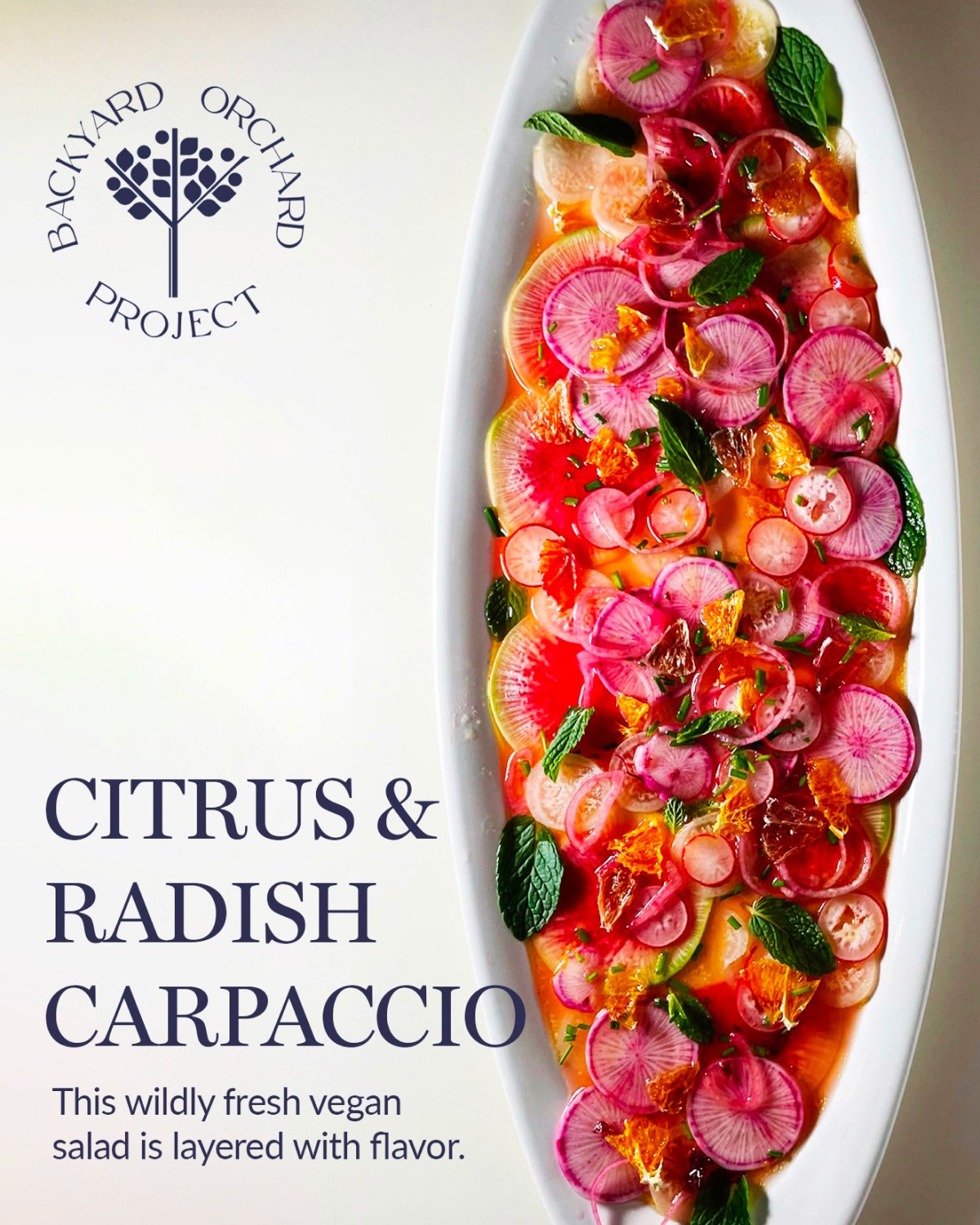Impact as a solution
The Power of Community: Leveraging Existing Resources to Make a Difference.
The "Backyard Orchard Project," leveraged CANAVA’s platform to engage with our local Los Angeles community. We harvested and collected surplus fruits from trees owned by individuals across the basin and distributed them to those who needed them the most. This initiative not only provides nutritional and regenerative food to our neighbors but also creates positive impact by reducing waste.
Within a week, we were able to harvest over 2.4 tons of fruit which we then transported 2.2 tons of that fruit to the Los Angeles Mission who are dedicated to providing food directly to the unhoused communities in our city that are most in need. In addition to this, we worked to preserve the remaining fruit through dehydration, we gifted the results back to the generous individuals who donated the fruit and developed recipes in tandem to educate about the use of preserved foods. These recipes are openly shared on our platform for anyone to use.
The Backyard Orchard Project case study serves as a valuable proof of concept that can be replicated year-round in any location as a part of our brand platform and retail footprint growth. By consistently reducing waste, increasing education, and feeding our neighbors who are most in need, while simultaneously building community, this initiative is a win-win for all those involved.
x
Unraveling the Layers: The Tale of a Multi-Impact Project
Creative directing and executive producing the content for this collaboration between West Elm, Whole Foods, and The New Denim Project in Guatemala was an exceptional project that taught us about the potential of circular models in product design and production. The project utilized up-cycled post-industrial denim and unprocessed virgin cotton to create durable and biodegradable materials. Moreover, the waste generated during the process of creating the thread and fiber was reused as feed and fertilizers for a dairy farm in central Guatemala. The animal waste from the farm was then used as fertilizer for an employee-operated coffee plantation on the same property. This process ensured minimal waste and created many quality jobs.
Sustainable Style: Dressing World Travelers with Up-cycled Designs
Our foundational idea was to take the old and make it new again when we partnered with the founders of Cool Hunting to create a "non-uniform" for their first brand adventure - a 35-person safari in Zambia that Pentax sponsored. Since cameras would be everywhere, the group needed custom gear that didn't make them look like they were on a guided trip for teens. To achieve this, we sourced and customized bespoke jackets for each attendee by upcycling vintage safari jackets and reworking them, adding cohesive Cool Hunting brand identifiers.
Make the collaboration dynamic, and make it yesterday.
The challenge came my way to find to quickly add additional collaborations into the denim assortment for J.Crew we had a couple of months to achieve what is normally a twelve to eighteen month process.
My solution was to look in our own backyard, we have inventory - let’s work in an artisanal way to find a compelling narrative and use product that would otherwise be sitting to deliver a new way of thinking about collaboration to our customers.
We partnered with Sean Hornbeak the one time creative director for “Denim Doctors” a cult denim concept famous for remaking vintage into fashion. Together we produced a fast to market unique offering that sold out almost immediately.

“Move fast and fix things.”
The YOXI fashion challenge was a partnership that invited college-age innovators from non-fashion disciplines to compete for funding for their innovative solutions that aimed to reduce the waste produced by the fashion industry.
Angela Lindvall, Rogan Gregory, and Scott Hahn & I partnered with Sharon Chang, the founder of YOXI, on a months-long video campaign and award ceremony series. Proving sustainability can also be entertainment.






















